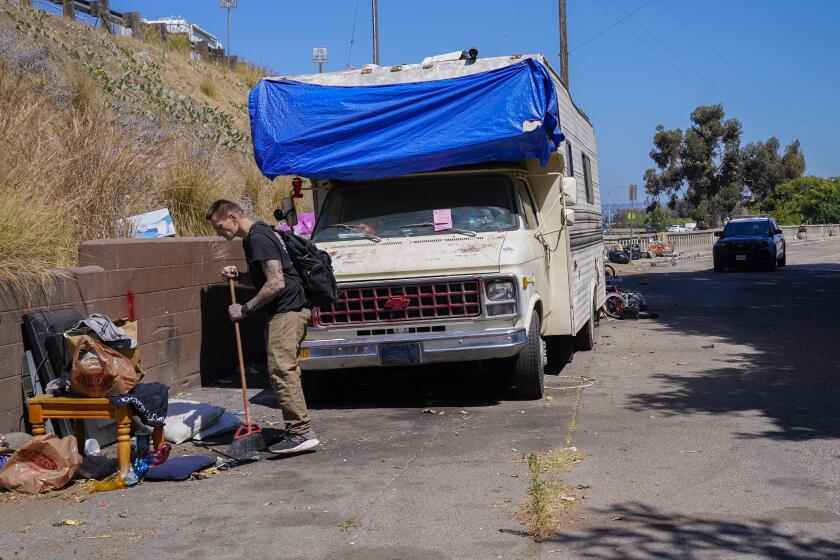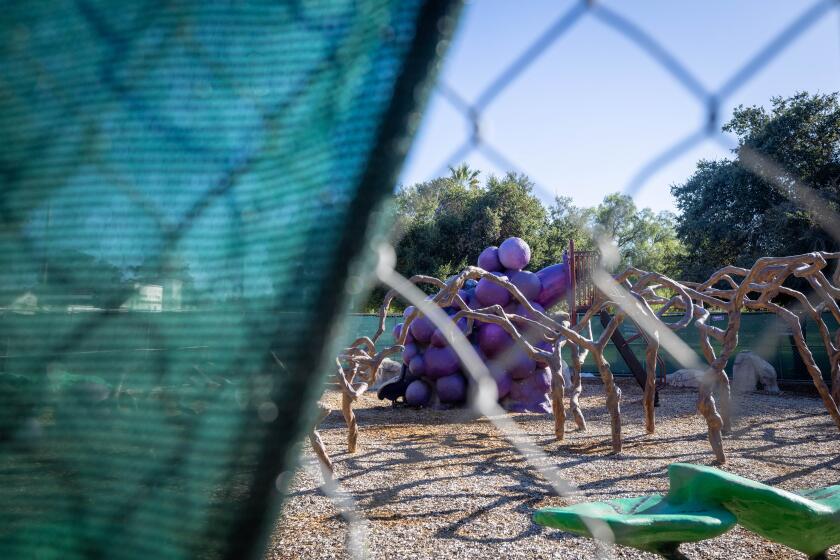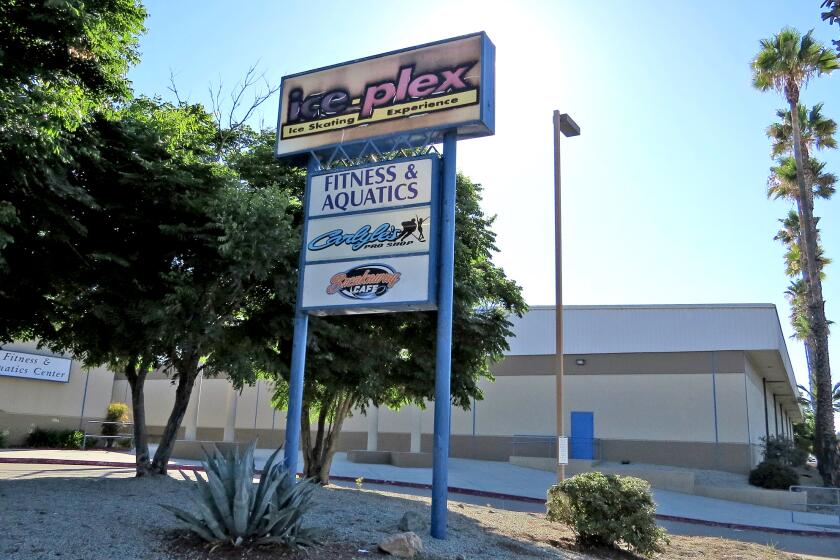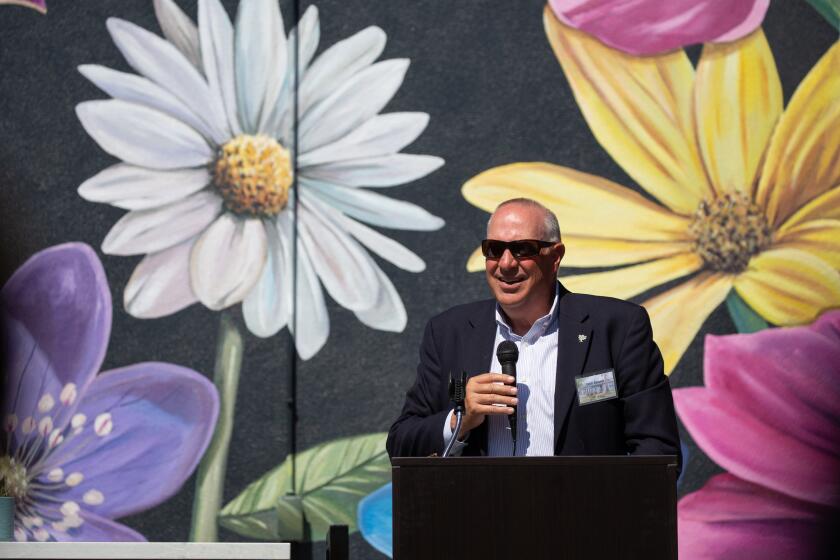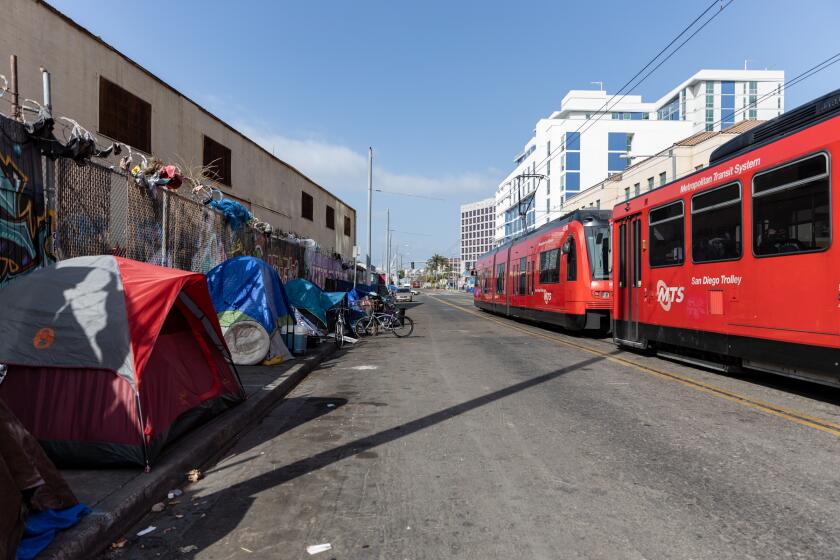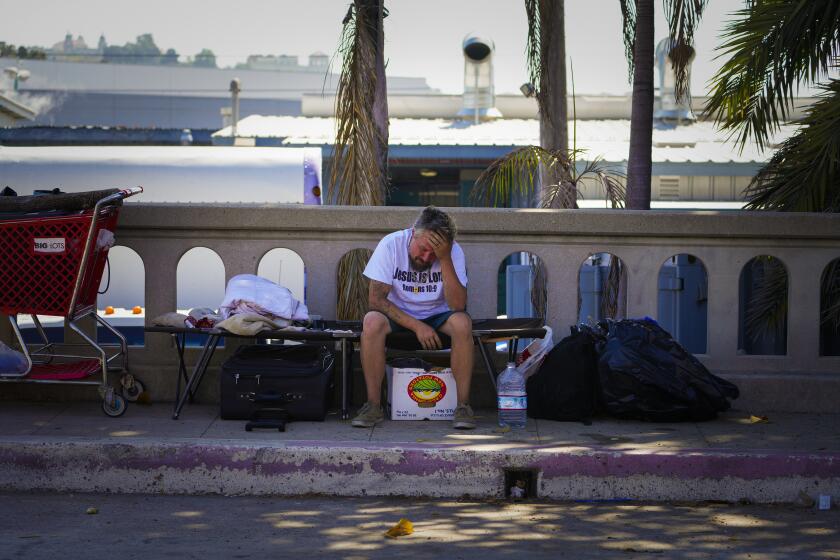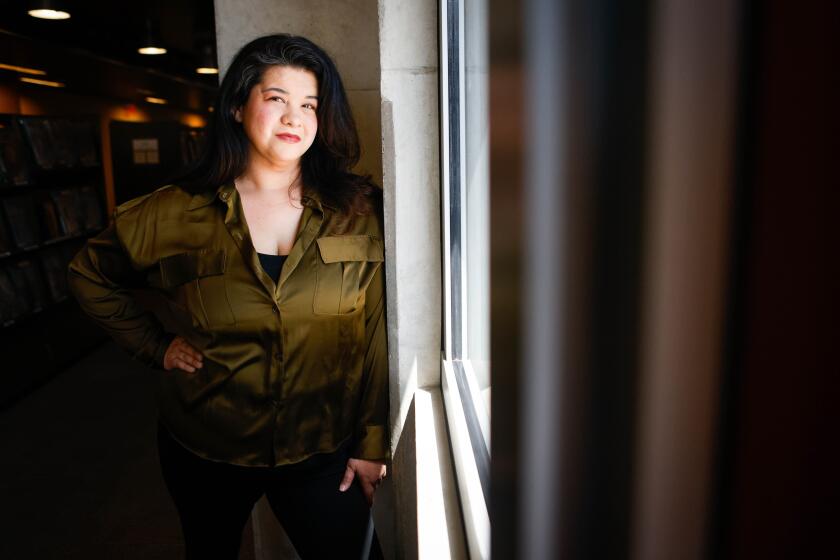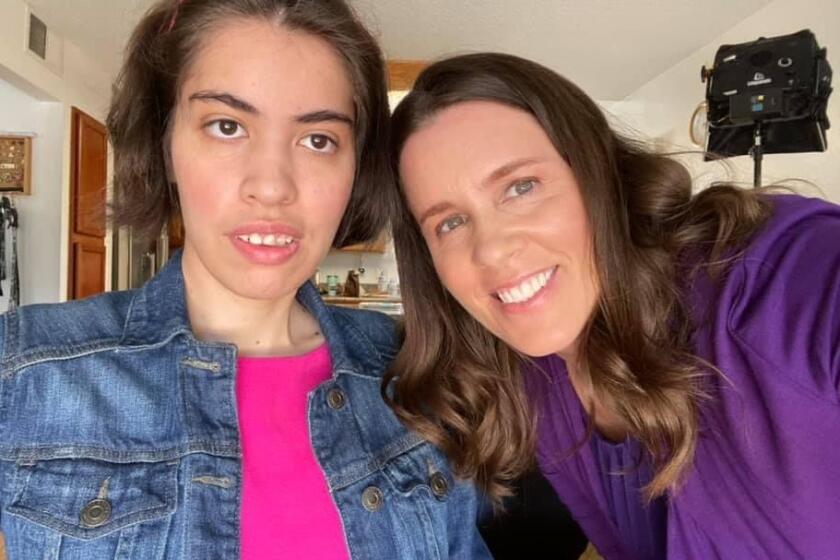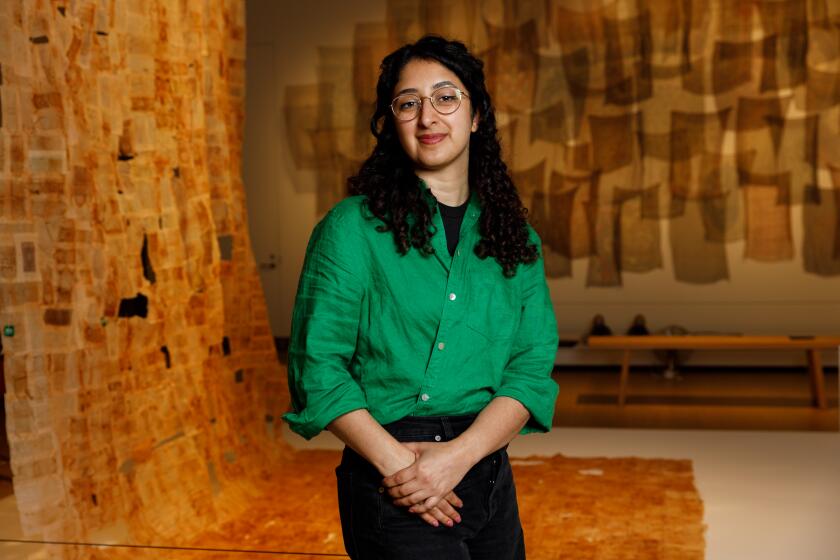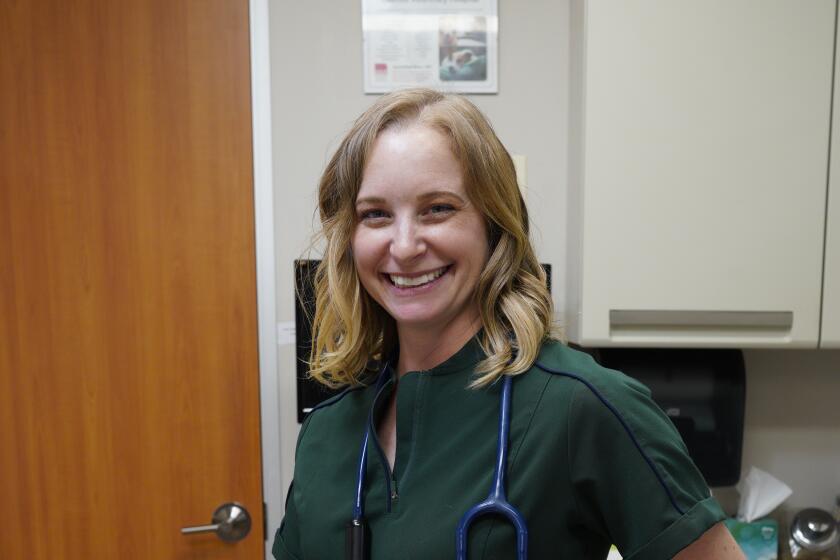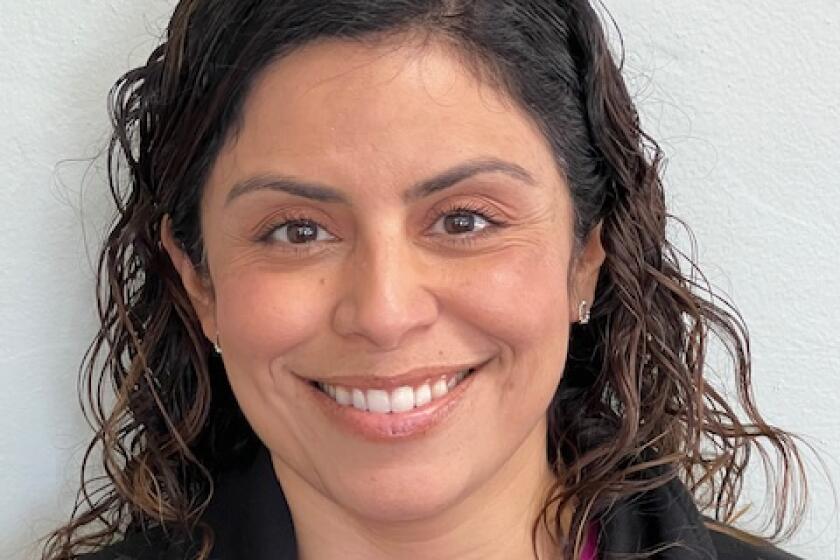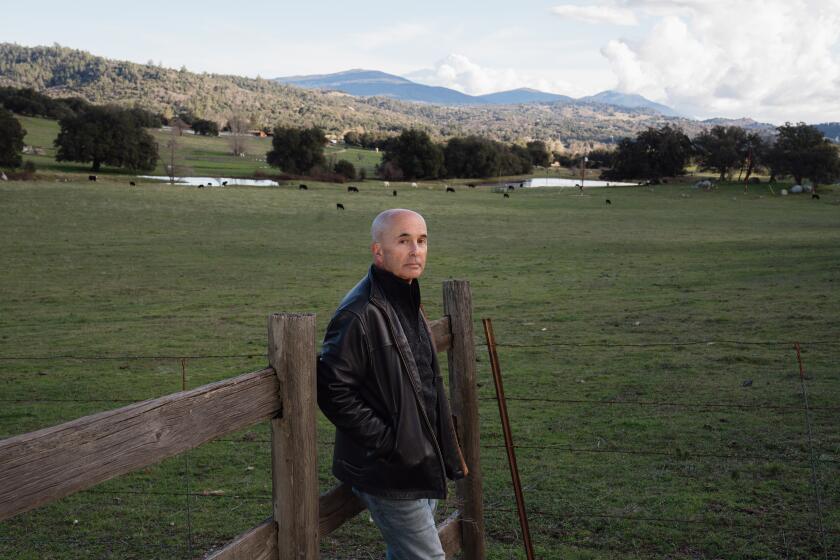Project Homeless Connect serves 1,200 in need
More than 1,200 people in need came to Golden Hall in San Diego on Wednesday to receive free warm clothes, a hot meal, haircuts and information about shelters, housing, medical care and other services as part of the 10th annual Project Homeless Connect.
“It’s about treating people with dignity and respect, and helping people get off the street,” Mayor Kevin Faulconer said about the annual event organized by the San Diego Housing Commission and other groups. The event attracted 1,215 people, up from 1,145 last year.
Also on Wednesday, the San Diego County Board of Supervisors approved $100,000 for temporary housing — largely for hotel/motel vouchers — for homeless people during bad weather.
In another event aimed at assisting the homeless, volunteers on Friday will canvas the county in an annual predawn count of unsheltered people. The count helps determine the amount of federal funding San Diego County will receive to help homeless people.
While not related to homelessness, San Diego saw yet another step toward helping house people in need Wednesday when Operation Homefront held a grand opening for transitional housing for eight veterans and their families.
At Golden Hall, the morning line to check in stretched across the Civic Concourse quad and turned down 3rd Avenue as people waited for their turn to participate in a 20-minute questionnaire before getting goods and services.
Melissa Peterman, director of Homeless Housing Innovations for the San Diego Housing Commission, said the questionnaire would help decide what services should be offered at the next Homeless Connect
Inside, one of the longest lines was for people to get California identification cards from the Department of Motor Vehicles. A law that went into effect last year made the ID cards free for homeless people.
Enesha Woolridge, 21, teared up when she spoke about how an ID card could change her life.
“I’ve been trying to obtain my documents because it’s been holding me back,” said Woolridge, who came to San Diego from Wisconsin about two years ago and has been homeless for six months. “I wanted to get a Social Security card, but I can’t get that without an ID. I wanted to into Job Corps, but I can’t get in without an ID.”
Upstairs at Golden Hall, students from Bellus Academy , the California Hair Design Academy and San Diego City College’s cosmetology program and trimmed hair for dozens of people. Volunteers downstairs worked on people’s feet, while dental hygienists examined teeth in another room. At the far end of Golden Hall, other volunteers handed out orange bags filled with socks and warm clothes, presorted and marked with the sizes of the items inside.
“This is a wonderful, caring community,” San Diego Housing Commission President and CEO Richard Gentry said about the 300-plus volunteers and more than 70 providers participating in the event.
Outside the hall, Humane Society workers watched pets while their owners went inside. Next to the kennels, San Diego Animal Control provided rabies shots, food and warm jackets to pets owned by homeless people.
Animal Control Officer Danica White said a call for donations for pet clothes was a huge success and resulted in blankets, leashes, jackets, flea treatments and many other items.
Several people who brought their dogs and cats to the event said they would rather stay on the street than give up their pet to stay in a shelter.
Phillip Williams, who is staying at the low-rent Golden West Hotel in the Gaslamp, came with his cat, Sister Ray.
“I wake up and she’s jumping on me,” he said, adding how the cat is his cure for loneliness. “We’re laughing. She keeps my spirits up. I wouldn’t trade her for nothing.”
Darrold Adams brought his seven-week-old pitbull, Dada, for a rabies shot.
“It keeps me sane,” said Adams, who described his living condition as “anywhere I lay my head.“ “It keeps you laughing. Especially a puppy.”
Adams said he is on a waiting list for a shelter, but he would turn it down if they wouldn’t let him in with Dada.
A man who gave his name as Brother Shine waited in the Animal Control line with his 18-week-old puppy, Chubby.
At 60, Brother Shine has been homeless on and off for 20 years, and Chubby is the first dog he has owned since he was in his 20s.
Now his constant companion, the dog is no trouble to care for on the street, Brother Shine said.
“The people who feed the homeless, they come and bring food for the dogs, too,” he said. “There’s a blessing every time there’s a need.”
San Diego County News Center has a video of services offered to pet owners at the event.
In Mission Valley on Wednesday, Operation Homefront was celebrating the opening of transitional homes for families who, while not homeless, did need some help.
The organization had opened transitional housing for 11 veteran families in Oceanside in 2010 but has moved the program to eight units in the Village Mission Valley apartment community just north of Friars Road.
Gracie Broll, senior director of transition housing for Operation Homefront, said the move was made because there were issues with the grounds in Oceanside, and the new location is closer to services many residents use.
Veterans in the program are recovering from a wound or illness that led to their discharge, and they stay until they begin receiving compensation from the Department of Veterans Affairs, usually 6 to 18 months, she said.
Other Operation Homefront Veterans Villages are in Gaithersburg, Md., and San Antonio.
Families chosen for the program typically are struggling as they make the transition to civilian life, and the free, temporary housing helps them during a difficult time.
“Operation Homefront gave us the precious gift of time,” said Melody Butler.
Her husband, Jason, suffered severe contusions and brain trauma during combat in Iraq in 2012. Talking about the incident still brings tears.
“As a family, we were unprepared for what lay ahead,” she said. “For the first time, our family would be making decisions, not the Corps. The pressure to make those decisions almost seemed unbearable at times.”
Butler said the family has paid off more than $35,000 in debt and has a sense that they are no longer alone after moving into their home.
Hector Perez, 32, moved into the Mission Valley apartment in October with his wife, Breanna, and daughter Elena, 3.
He joined the Marine Corps in 2002 and served until injuring his leg in combat last year. Perez said he moved twice in four months before moving into his new home, where his daughter has two toy kitchens to play with and a sign on the living room wall has the message, “Faith, Hope and Love.”
Louis Ruiz and his family had lived in the Oceanside village but have moved out after receiving one of the more than 500 mortgage-free homes Operation Homefront has provided veterans since 2012.
Before moving into the village, he said his family had moved five times in four years after he left the Marine Corps in 2014.
“After moving so much, all my kids asked for was a home to call their own,” he said. “That’s all anyone wants to do, is put their kids in a house. After our first week in the house, I’d never seen the kids happier.”
gary.warth@sduniontribune.com
760-529-4939
@GaryWarthUT
Get Essential San Diego, weekday mornings
Get top headlines from the Union-Tribune in your inbox weekday mornings, including top news, local, sports, business, entertainment and opinion.
You may occasionally receive promotional content from the San Diego Union-Tribune.

